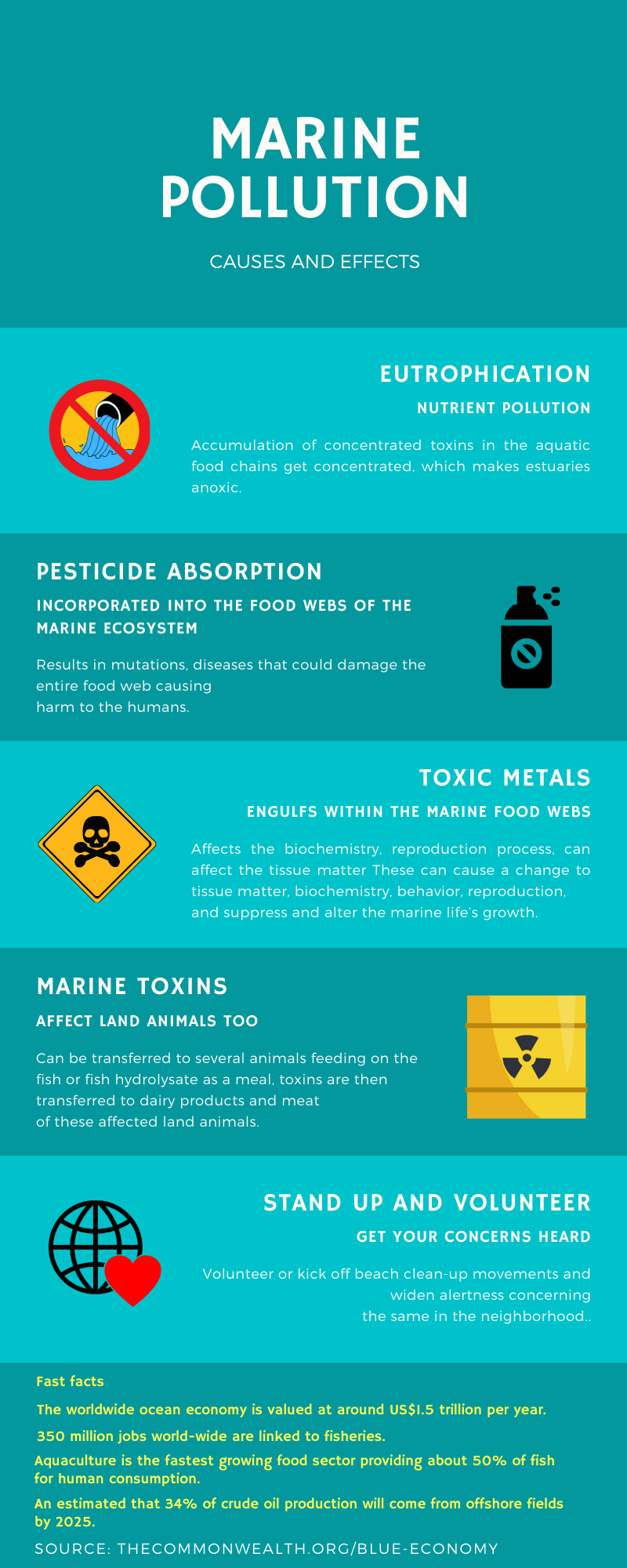India’s Minister for Earth Sciences, H.E. Dr Harsh Vardhan, and Norway’s Minister for Climate and Environment, H.E. Mr Sveinung Rotevatn, opened the India-Norway Task Force on Blue Economy for Sustainable Development today. The two countries also commenced a new collaboration on Integrated Ocean Management & Research.
As a part of the Joint Initiatives, several projects on combating Marine Litter are already being implemented. Today, the two Governments signed a Letter of Intent confirming that they will develop a new framework for collaboration on Integrated Ocean Management and Research. The letter of intent was signed in the presence of Mr Ratan P. Watal, Member Secretary, EAC to PM; H.E. Hans Jacob Frydenlund, the Norwegian Ambassador to India; Ms Nina Rør, Deputy Director-General, Ministry of Climate and Environment, Norway; Mr M. Rajeevan, Secretary, Ministry of Earth Sciences, Govt. of India and Dr Sumita Misra, Senior Adviser, EAC to PM. [1]
What is the Blue Economy?
The official commonwealth portal defines ‘Blue Economy’ as a promising concept that supports enhanced governance of our oceanic or ‘blue’ resources. Akin to the ‘Green Economy’, the blue economy model aims at the enhancement of human welfare and societal equity, while radically lessening environmental risks and ecological paucity. It presents for an all-encompassing model in which coastal states that are at times be deficient in the competence to deal with their rich marine resources can extend the benefit of those resources to everyone. Gaining the complete potential of the blue economy means inclusion and involvement of all affected societal groups and sectors.
The blue economy is not just about market opportunities; it also provides for the protection and development of more intangible ‘blue’ resources such as traditional ways of life, carbon sequestration, and coastal resilience to help vulnerable states mitigate the often devastating effects of climate change.[2]
What are the various causes of Marine Pollution?
There are 4 predominant causes of Marine Pollution such as eutrophication (nutrient pollution), acidification, toxins and plastics. While eutrophication is a result of the excess of nitrates and phosphates present in the water, acidification of oceans (oceans are natural carbon dioxide absorbing reservoirs) is due to rising carbon dioxide levels in the atmosphere. Further, deposits of persistent toxins like pesticides, PCBs, furans, TBT, radioactive waste, and dioxins that do not easily dissolve or disintegrate get collected in the tissue cells of the aquatic organisms and hinder the life undersea; at times it even leads to transmutation in the oceanic life forms. Nevertheless, plastics have been filling the waters and the land due to ever-increasing human dependence on plastic. It amounts to a shocking 80% of the trash found in the seas. The swimming plastic cocoons pose a threat to aquatic organisms in the seas and to the wildlife on the land, as they choke them to death sometimes.

Effects of Marine Pollution
Eutrophication of surface waters stimulates the growth of algae due to excess nutrients. Accumulation of concentrated toxins in the aquatic food chains get concentrated, which makes estuaries anoxic (greatly deficient in oxygen).
When the marine ecosystem absorbs the pesticides, they are incorporated into the food webs of the marine ecosystem and results in mutations, diseases that could damage the entire food web causing harm to the humans.
When toxic metals get dumped into the deep sea through drains, it gets absorbed in the marine food webs. It affects the biochemistry, reproduction process, can affect the tissue matter and can form a basis to changes in the tissue matter, biochemistry, behaviour, reproduction, and repress and change the marine life’s growth. Marine toxins can be transferred to several animals feeding on the fish or fish hydrolysate as a meal; toxins are then transferred to dairy products and meat of these affected land animals. [2]
Steps to Prevent Marine Pollution
- Stop using plastic and littering garbage as they not only choke up the drains but also releases into the oceans.
- Ensure that chemicals mentioned above are not used anywhere near the streams of water and try cutting down on the usage of such chemicals.
- For farmers, they need to switch from chemical fertilizers and pesticides and move towards the usage of organic farming methods.
- Use public transport and reduce the carbon footprint by taking small and substantial measures that will not help in reducing the pollution from the environment but will ensure a safe and healthy future for the upcoming generations.
- Prevent from any oil or chemical spill in the oceans and if in case there is an oil or chemical spill near you volunteer and help in cleaning out the ocean water.
- Volunteer or kick off beach clean-up movements and widen alertness concerning the same in the neighbourhood. [3]
References
- https://pib.gov.in/PressReleseDetail.aspx?PRID=1603594
- https://thecommonwealth.org/blue-economy
- https://www.mapsofindia.com/my-india/society/marine-pollution-causes-types-effects-prevention